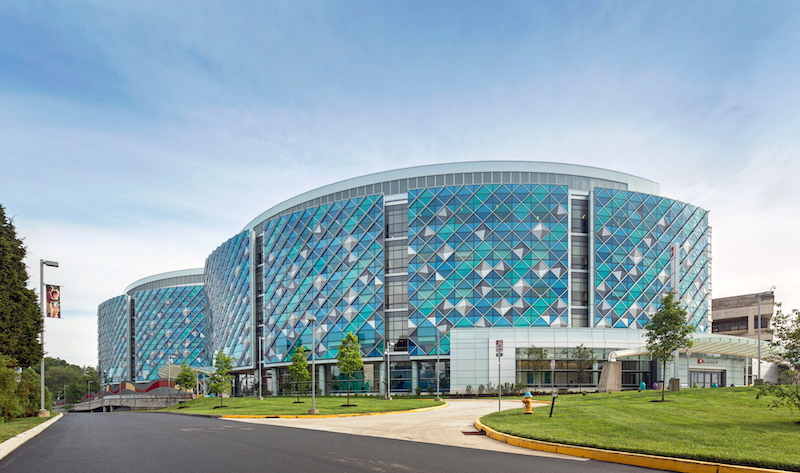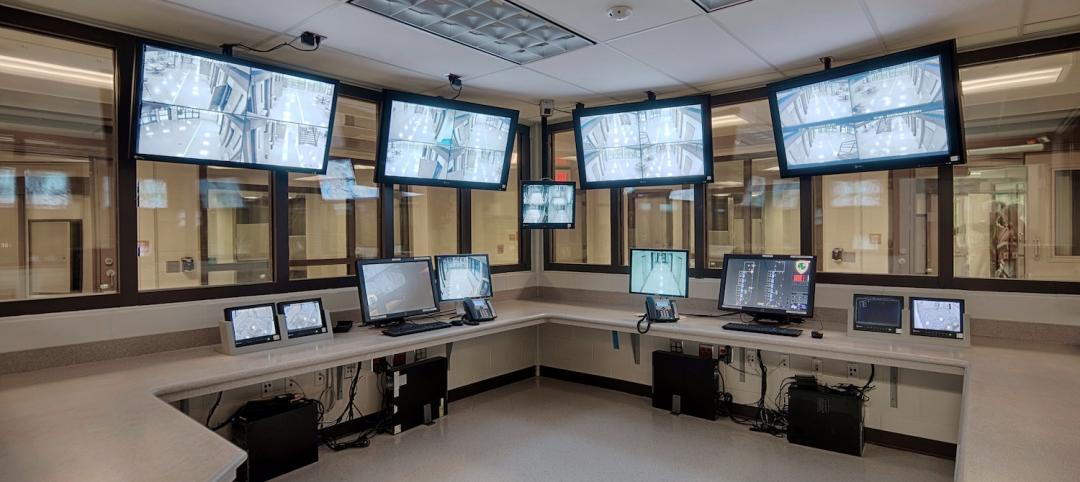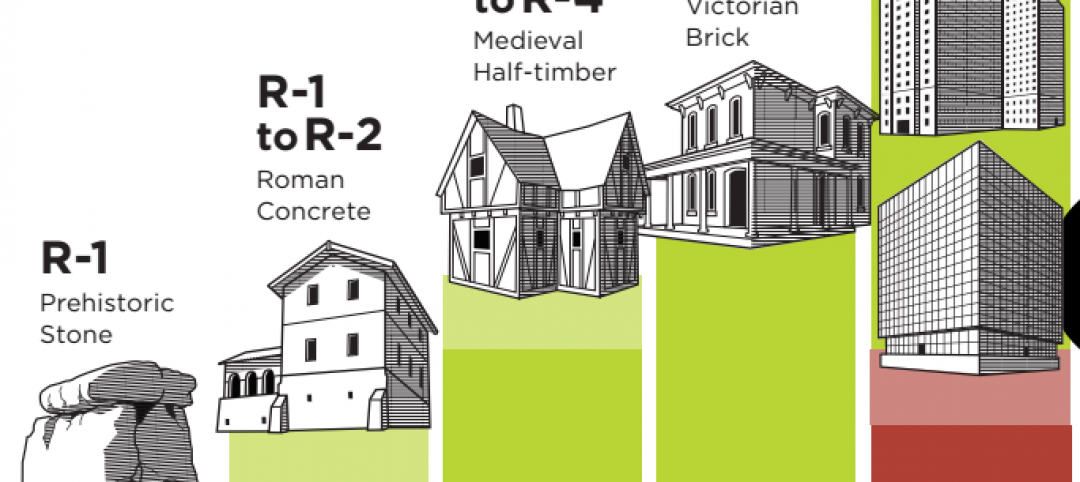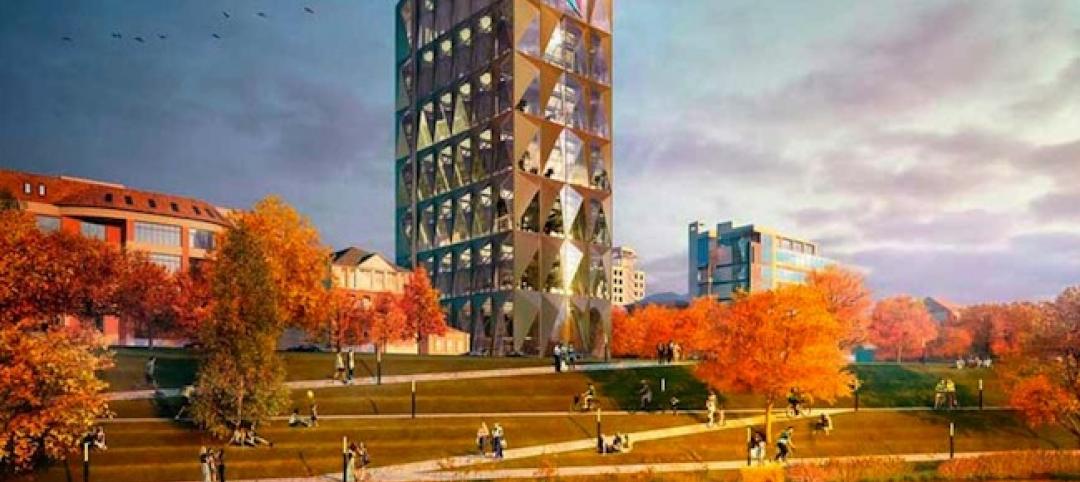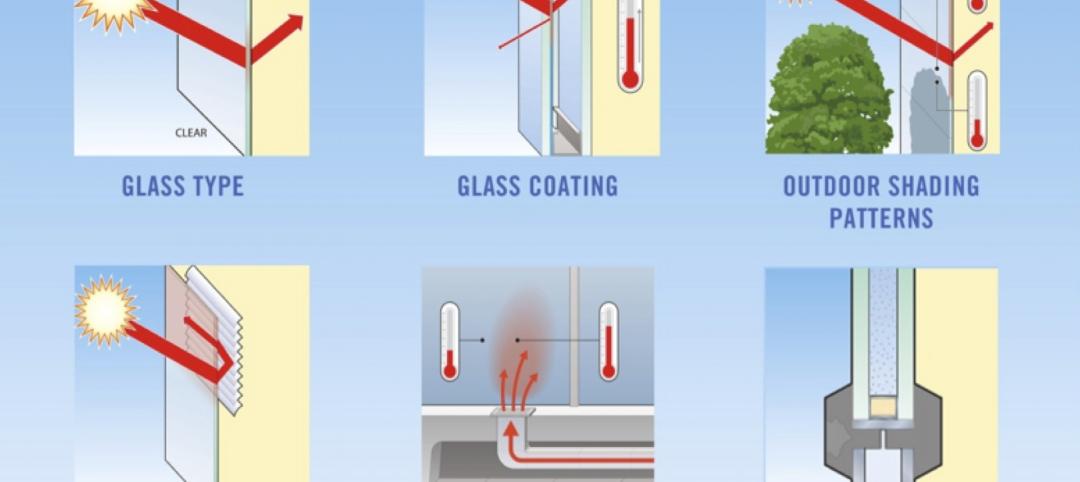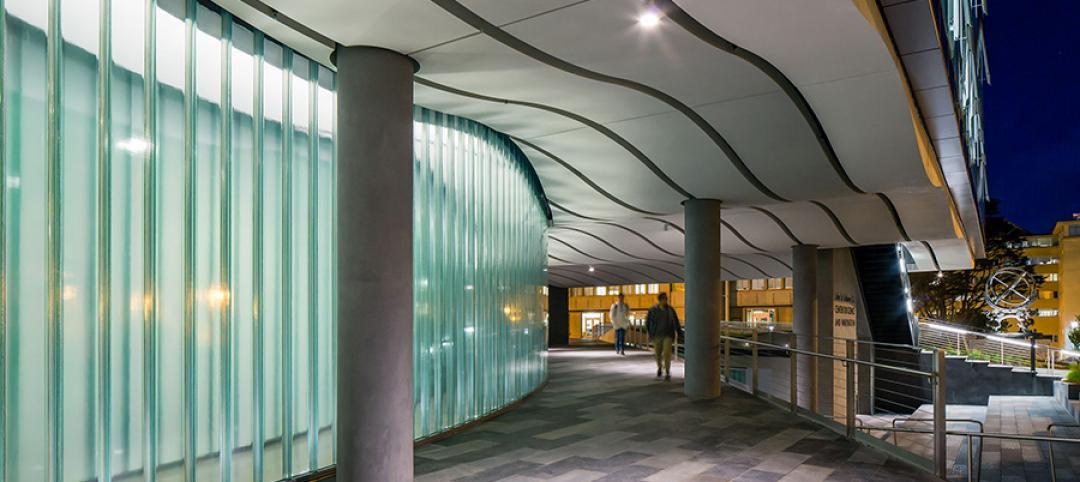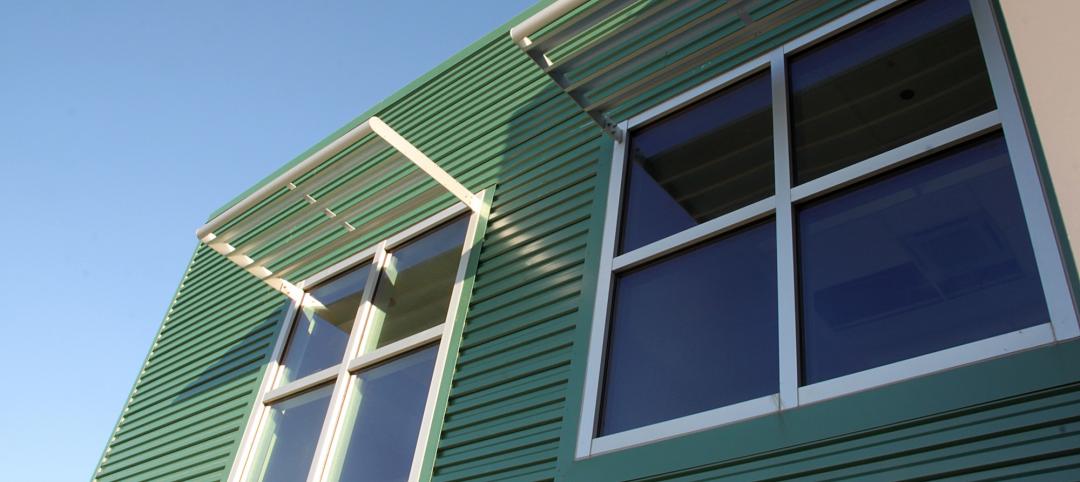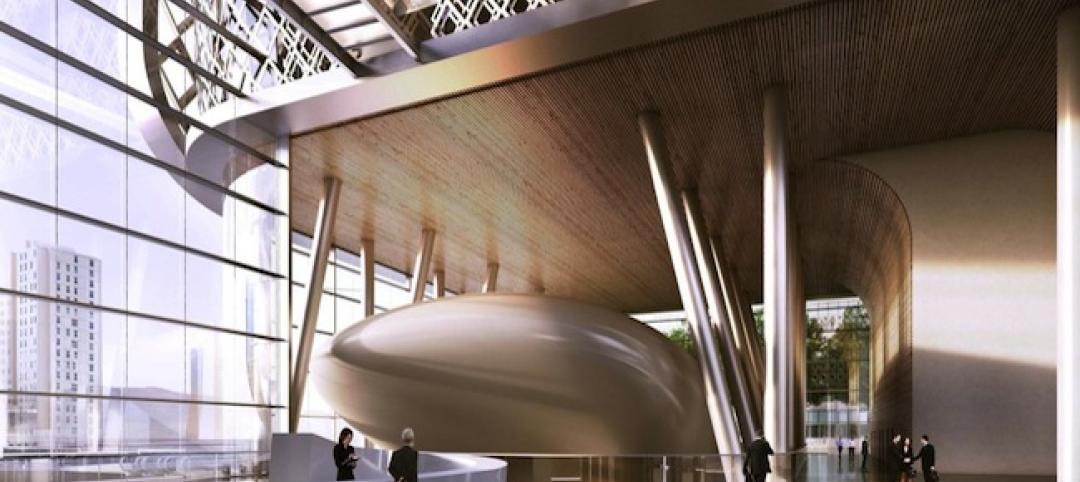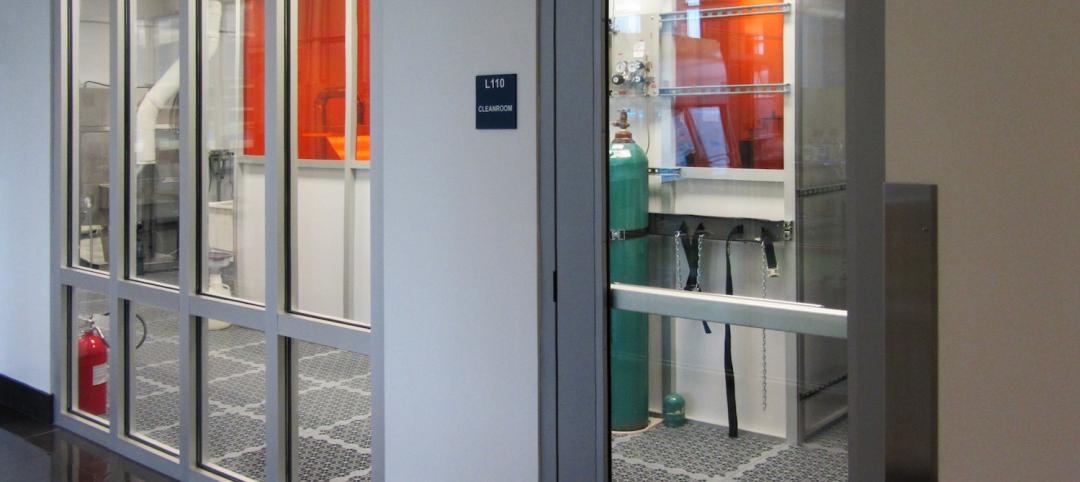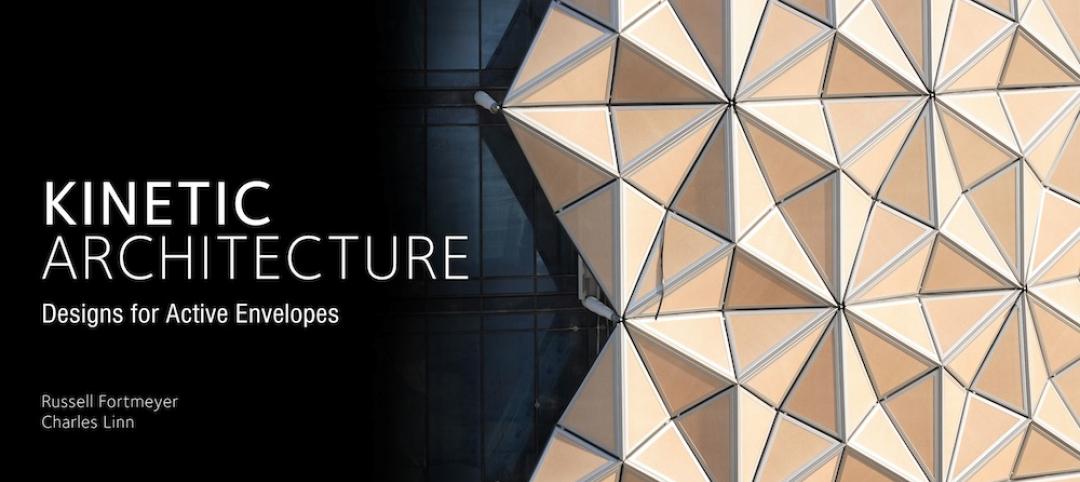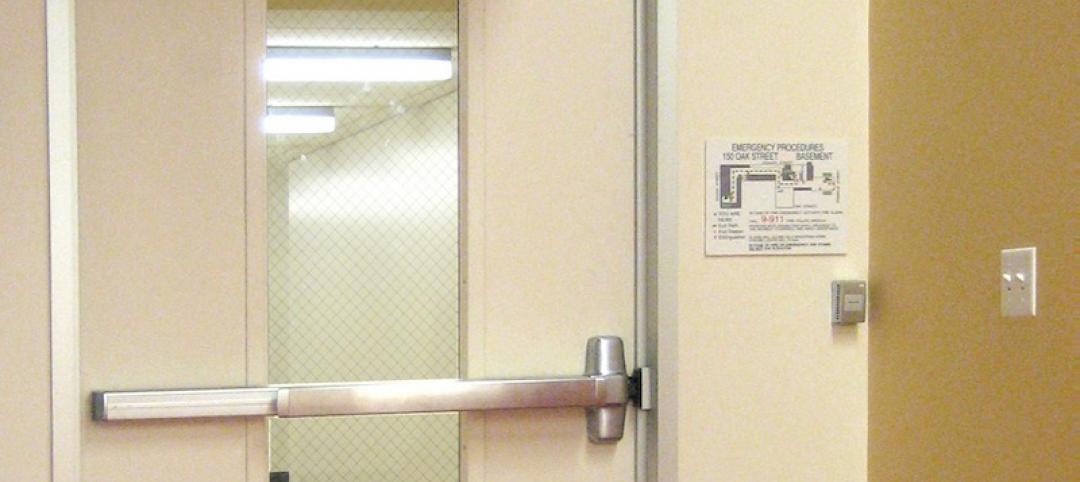When Paul Asteris of FKP Architects first conceived the signature façade of an expanded Nemours/Alfred I. duPont Hospital for Children, his vision was to have the glass and metal framing mimic the protective framework of an arbor. Solarban® 70XL glass and a by-chance discovery of Azuria glass, both by Vitro Architectural Glass, helped make that idea a reality.
Located in Wilmington, Delaware, Nemours/duPont hospital has undergone a series of expansions since it was founded in the 1940s. The latest 450,000-square-foot addition is designed to maintain the facility’s legacy of world-class treatment by drawing on the latest health care design principles including child-friendly patient rooms; healing gardens; and large, light-filled spaces.
As lead architect for the project, Asteris sought to appropriate the “playful elegance” of the gardens surrounding the neighboring duPont family mansion by placing a vast atrium at the center of the hospital and designing a bright arbor-patterned curtainwall for the exterior façade.
A combination of brilliant blue-green metal coatings and a timely recommendation for tinted Azuria glass helped achieve those aims and kept the project on schedule too.
“The glass we were first looking at had a blue-gray tint and was coming off a bit flat,” Asteris said. “By chance, a Vitro Glass representative visiting our office saw the renderings and offered to help. He came back with samples showing Azuria [glass] with some spandrel tones and it had the color punch we were looking for. That really helped us get the project back on track, as we were in danger of going off schedule.”
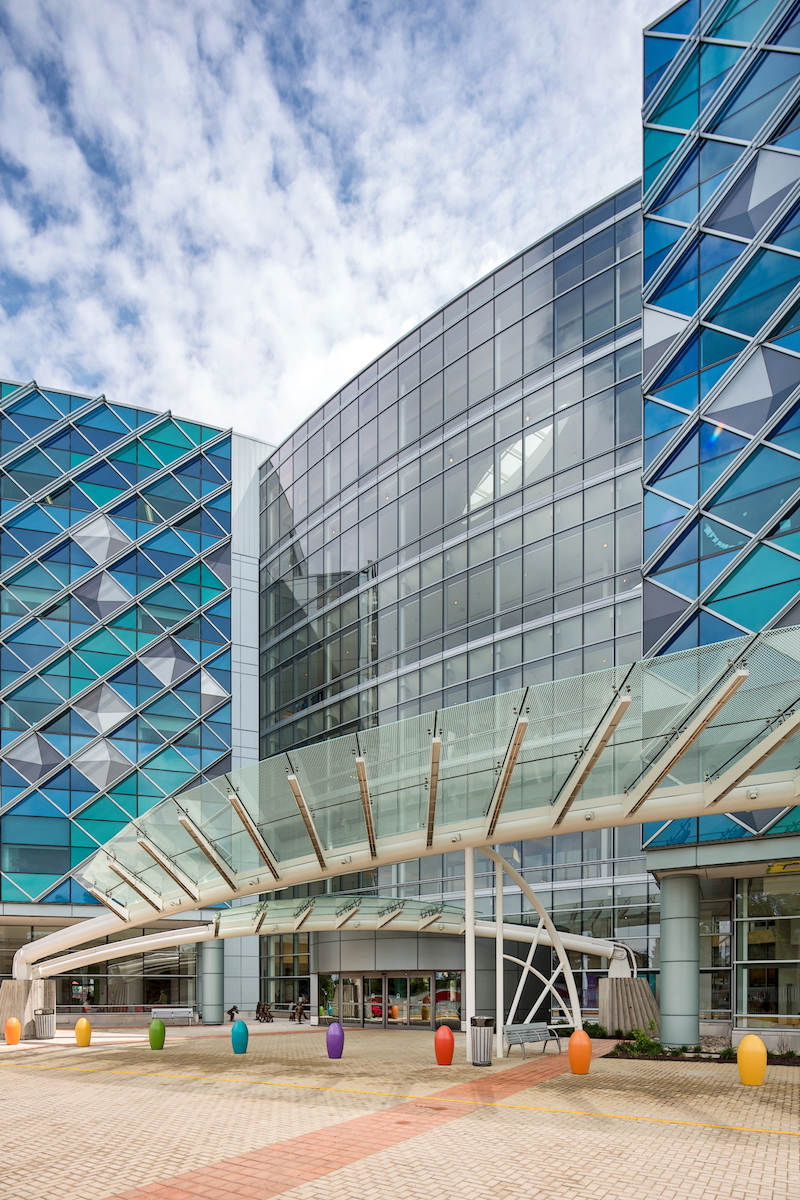
The aqua-blue appearance of Azuria glass is complemented throughout the hospital by tall panels of glass and skylights fabricated with Solarban® 70XL glass in the central atrium. Both glasses were selected to maximize daylighting into occupied spaces.
The colorful curtain wall also is integral to the energy management system, which helped the hospital achieve LEED® certification at the Silver level. “We chose glass products that would meet the current energy code then improve it by 10 percent,” Asteris explained.
Solarban® 70XL glass has visible light transmittance (VLT) of 64 percent and a solar heat gain coefficient (SHGC) of 0.27 with clear glass in a standard 1-inch insulating glass unit (IGU). The resulting 2.37 light-to-solar gain (LSG) ratio makes it one of the highest-performing products in the industry. Even with its rich aqua-blue color, Azuria glass has VLT of 61 percent in the same configuration, along with a SHGC of 0.39.
To date, the feedback Asteris has received on the hospital’s design and performance has been universally positive. “The intent was to create a facility that would set Nemours apart from other children’s hospitals. The administration wanted this to be a place where families could bring their kids to get the best care available, so we needed to create spaces that would foster a family-friendly healing environment. Anyone who visits the hospital will sense that truly is the case.”
To learn more, visit www.vitroglazings.com.
Related Stories
| Jul 24, 2014
Glazing options in correctional and detention facilities
Like it or not, the number of incarcerated people in the U.S. continues to rise. With that, increased security in all aspects of these facilities continues to be a priority. This is where security glazing products that allow line of sight for supervisors to observe and still maintain secure separation can play a key role. SPONSORED CONTENT
| Jul 17, 2014
A harmful trade-off many U.S. green buildings make
The Urban Green Council addresses a concern that many "green" buildings in the U.S. have: poor insulation.
| Jul 14, 2014
Foster + Partners unveils triple-glazed tower for RMK headquarters
The London-based firm unveiled plans for the Russian Copper Company's headquarters in Yekaterinburg.
| Jul 7, 2014
5 factors that can affect thermal stress break risk of insulated glass units
The glass type, glass coating, shading patterns, vents, and framing system can impact an IGU’s risk for a thermal break.
Sponsored | | Jul 7, 2014
Channel glass illuminates science at the University of San Francisco
The University of San Francisco’s new John Lo Schiavo Center for Science and Innovation brings science to the forefront of academic life. Its glossy, three-story exterior invites students into the facility, and then flows sleekly down into the hillside where below-grade laboratories and classrooms make efficient use of space on the landlocked campus.
Sponsored | | Jun 27, 2014
SAFTI FIRST Now Offers GPX Framing with Sunshade Connectors
For the Doolittle Maintenance Facility, SAFTI FIRST provided 60 minute, fire resistive wall openings in the exterior using SuperLite II-XL 60 insulated with low-e glazing in GPX Framing with a clear anodized finish.
| May 28, 2014
KPF's dual towers in Turkey will incorporate motifs, symbols of Ottoman Empire
The two-building headquarters for Turkey’s largest and oldest financial institution, Ziraat Bank, is inspired by the country’s cultural heritage.
| May 27, 2014
Fire Rated Glass contributes to open lab environment at JSNN
Openness and transparency were high priorities in the design of the Joint School of Nanoscience & Nanoengineering within the Gateway University Research Park in Greensboro, N.C. Because the facility’s nanobioelectronics clean room houses potentially explosive materials, it needed to be able to contain flames, heat, and smoke in the event of a fire. SPONSORED CONTENT
| May 20, 2014
Kinetic Architecture: New book explores innovations in active façades
The book, co-authored by Arup's Russell Fortmeyer, illustrates the various ways architects, consultants, and engineers approach energy and comfort by manipulating air, water, and light through the layers of passive and active building envelope systems.
| May 5, 2014
Tragic wired glass injury makes headlines yet again
In the story, a high school student pushed open a hallway door glazed with wired glass. His arm not only broke the glass, but penetrated it, causing severe injuries. SPONSORED CONTENT


